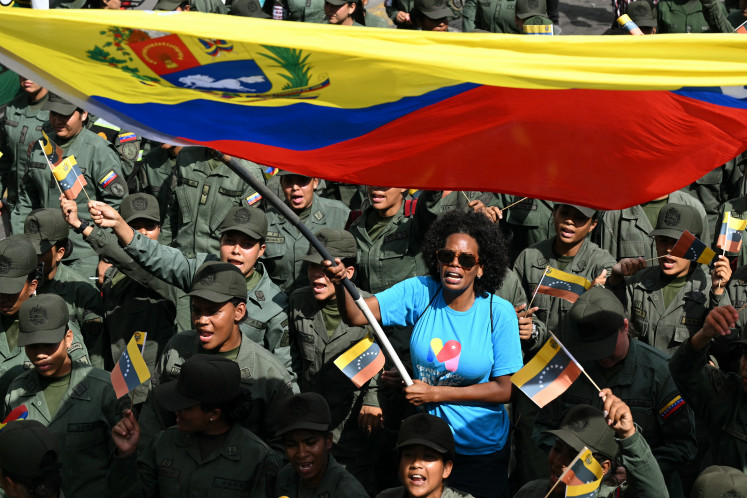Popular Reads
Top Results
Can't find what you're looking for?
View all search resultsPopular Reads
Top Results
Can't find what you're looking for?
View all search resultsBeing religious without being violent
Many outrageous cases of violence in Indonesia are also sparked by problems related to religion.
Change text size
Gift Premium Articles
to Anyone
G
enerally, we know that religion is held up as a vessel of peace, both inner and social peace. However, many outrageous cases of violence in Indonesia are also sparked by problems related to religion.
A week before Christmas, Muslim residents in Yogyakarta cut off the top of a cross, a symbol of Christianity, on their deceased Catholic neighbor’s grave following his burial near a public cemetery. The case might stretch relations among religions, sullying the proclaimed unitary state of the republic.
In history’s tapestry, religion and violence are woven together. Any number of religions have justified violence under certain circumstances, and others have become caught up in the process. In the ancient world, Zoroastrianism transformed earlier combat myths into a theology of eternal apocalyptic struggle between good and evil, and ancient Judaism forged a confederacy under conditions of war.
Early Christianity had its martyrs, and the medieval Roman church, its crusades and inquisitions. As for Islam, the close association between rulership and religion — together with the principle of jihad or holy war as a vessel of reformation — infuse politics enduring potential for violence.

















